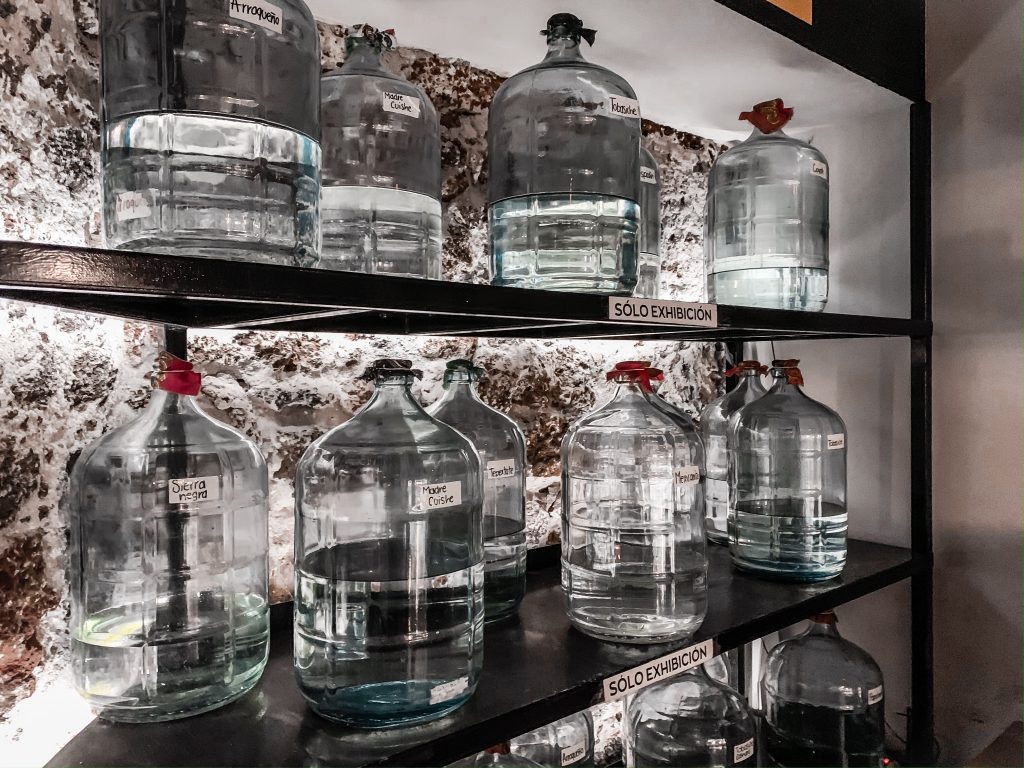Mezcal is a type of distilled alcoholic beverage made from the agave plant, primarily in Mexico. It is often compared to tequila, which is a type of mezcal made specifically from the blue agave plant and produced only in certain regions of Mexico.
Mezcal can be made from any type of agave plant and is typically produced in small batches using traditional methods. The heart of the agave plant, known as the “piña,” is cooked in underground pits lined with stones and heated with wood or charcoal. This cooking process imparts a smoky flavor to the mezcal, which is a distinctive characteristic of the spirit.
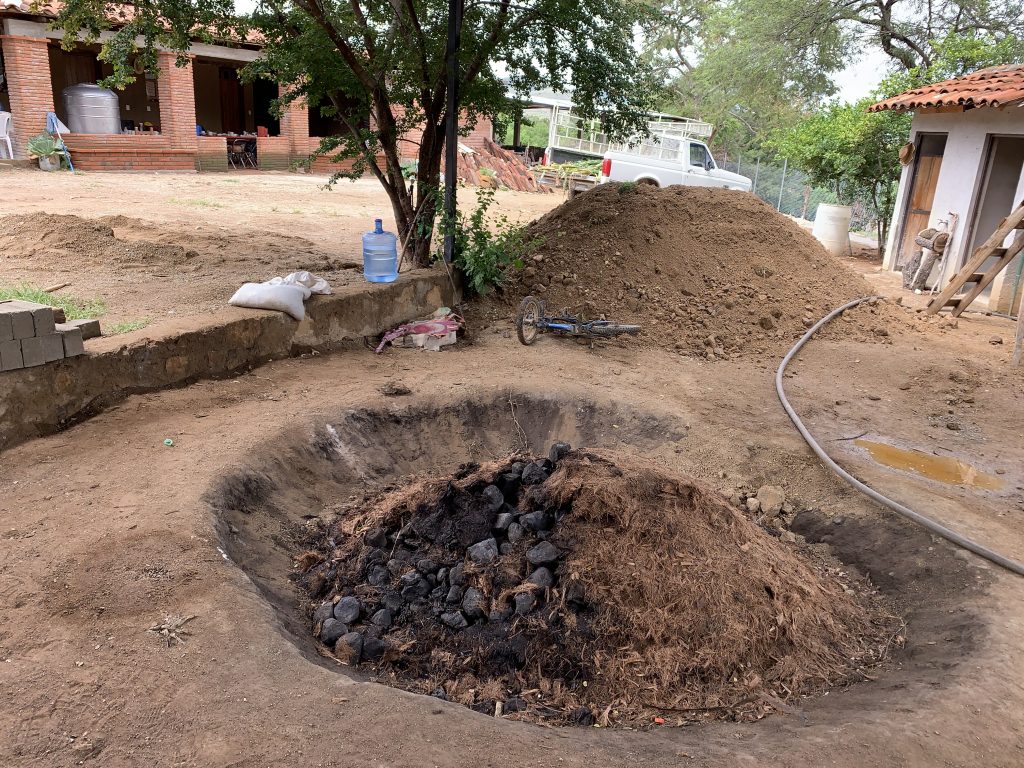
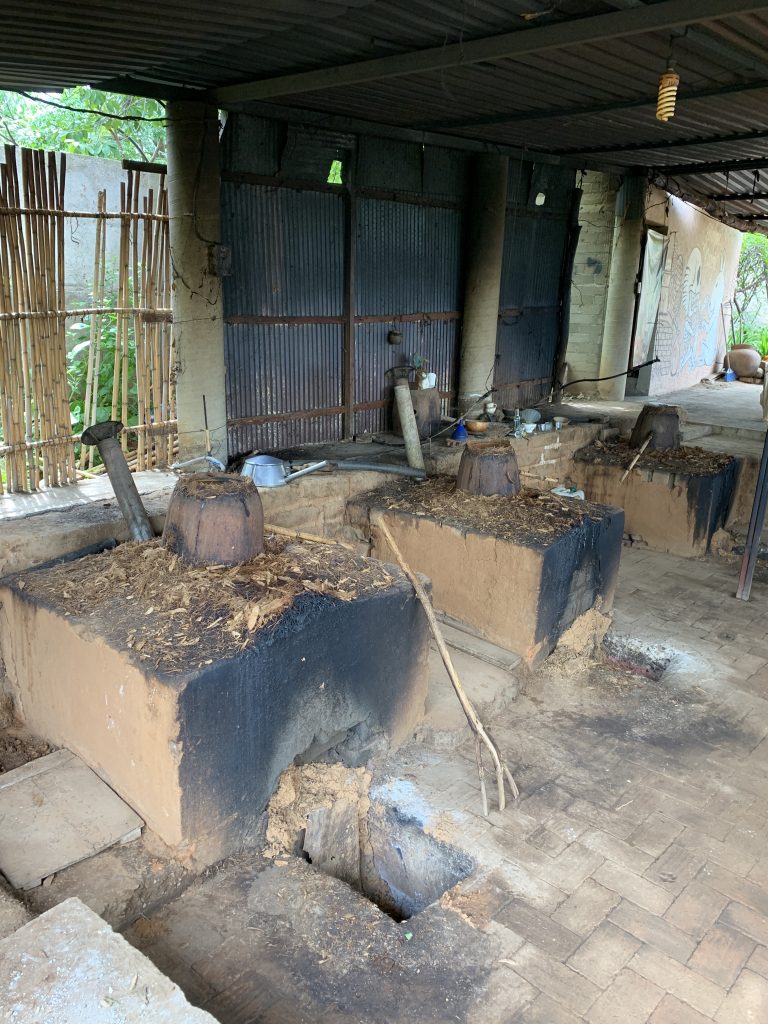
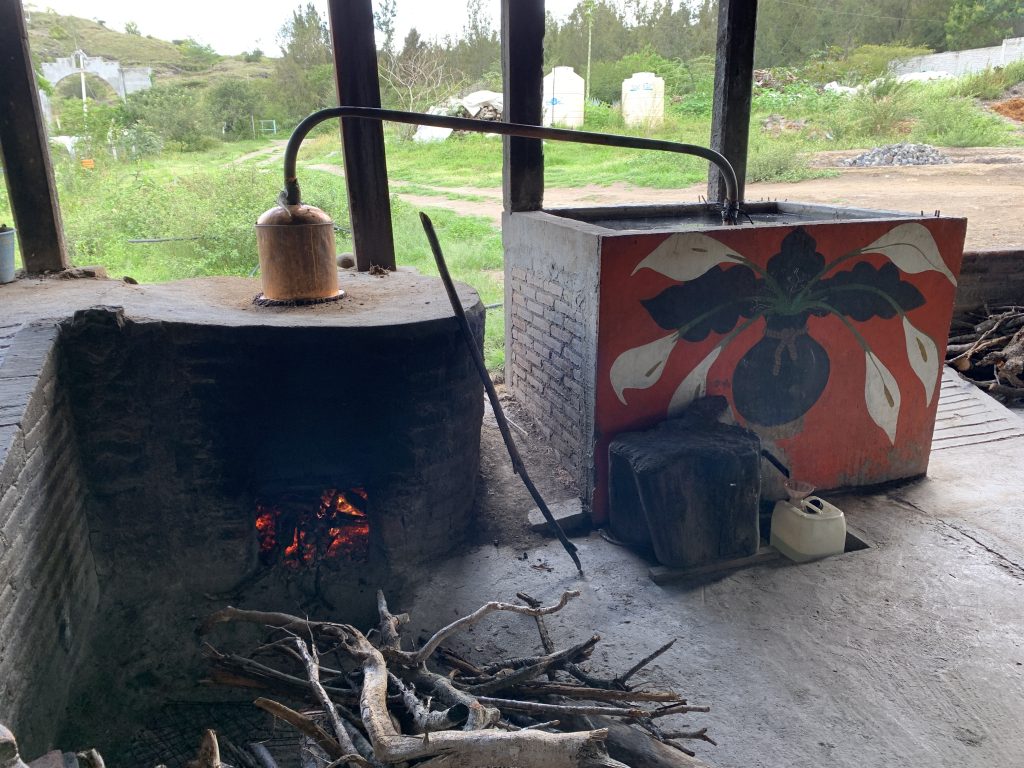
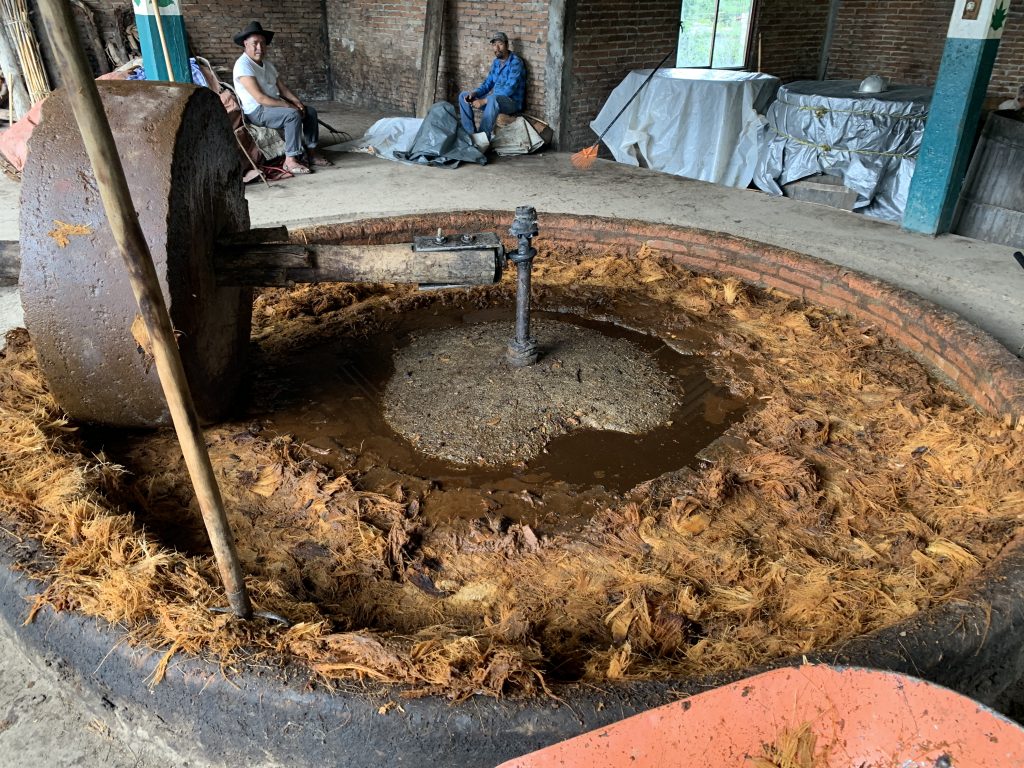
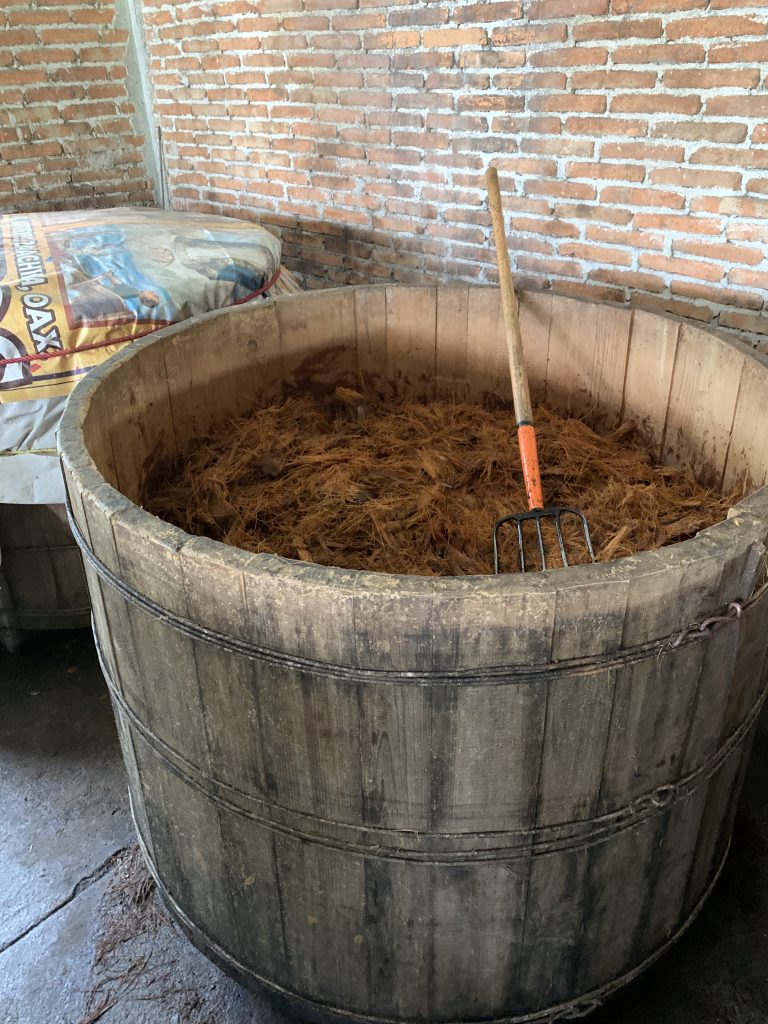
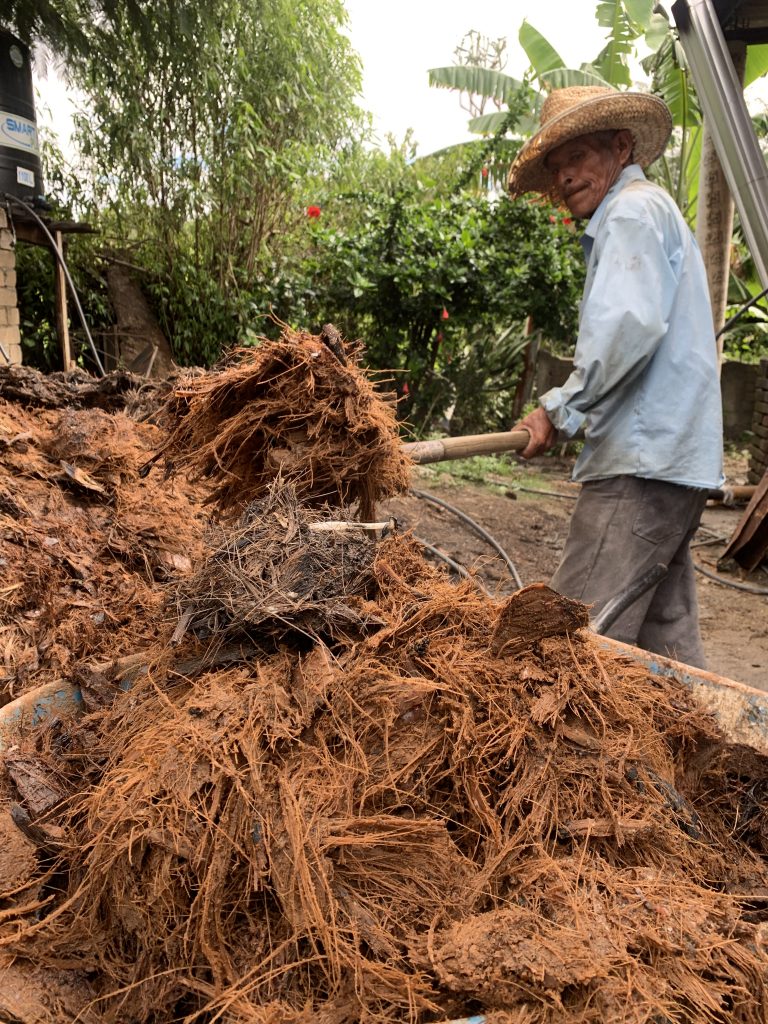
After cooking, the piñas are crushed to extract their juices, which are then fermented and distilled. Mezcal can be aged in oak barrels for several months to several years, which can further enhance its flavor and complexity.
Mezcal is often served neat or in cocktails and is known for its smoky, earthy flavor profile. It has gained popularity in recent years as a premium spirit, with a growing number of artisanal producers and varieties available on the market.
The Denomination of Origin of Mezcal
Mezcal under the denomination of origin refers to mezcal that is produced in accordance with the strict regulatory guidelines established by the Mexican government. These guidelines require that mezcal be made from certain varieties of agave plants and that it be produced using traditional methods, including cooking the agave in an underground pit oven, grinding it using a stone tahona, and distilling it in copper or clay pots. Mezcal produced under the denomination of origin must also be bottled within certain regions of Mexico, including Oaxaca, Guerrero, Durango, San Luis Potosí, Zacatecas, Guanajuato, Puebla Michoacan, Tamaulipas and as of recently, Sinaloa.
Mezcal in a general sense, on the other hand, refers to any distilled spirit made from an agave plant. This includes not only mezcal produced under the denomination of origin but also other types of agave spirits, such as raicilla, bacanora, sotol (made from dasylirion), and tequila (which is made exclusively from blue agave plants and is produced using different methods than those used to produce mezcal).
While mezcal produced under the denomination of origin is subject to strict quality control and certification processes, mezcal in a general sense is not. This means that the quality and authenticity of non-denomination of origin mezcal can vary widely and that there may be little to no regulation governing its production and distribution.
Traditional Mezcal
Traditional mezcal is typically made using centuries-old methods and techniques that have been passed down through generations of mezcal producers in Mexico. These methods often involve using a combination of manual labor and simple, rustic equipment to produce small batches of mezcal with a unique flavor and character.
One of the most distinctive features of traditional mezcal is the use of underground pit ovens to cook the agave piñas. These ovens are lined with stones and heated with wood or charcoal, which imbues the mezcal with a smoky flavor and aroma.
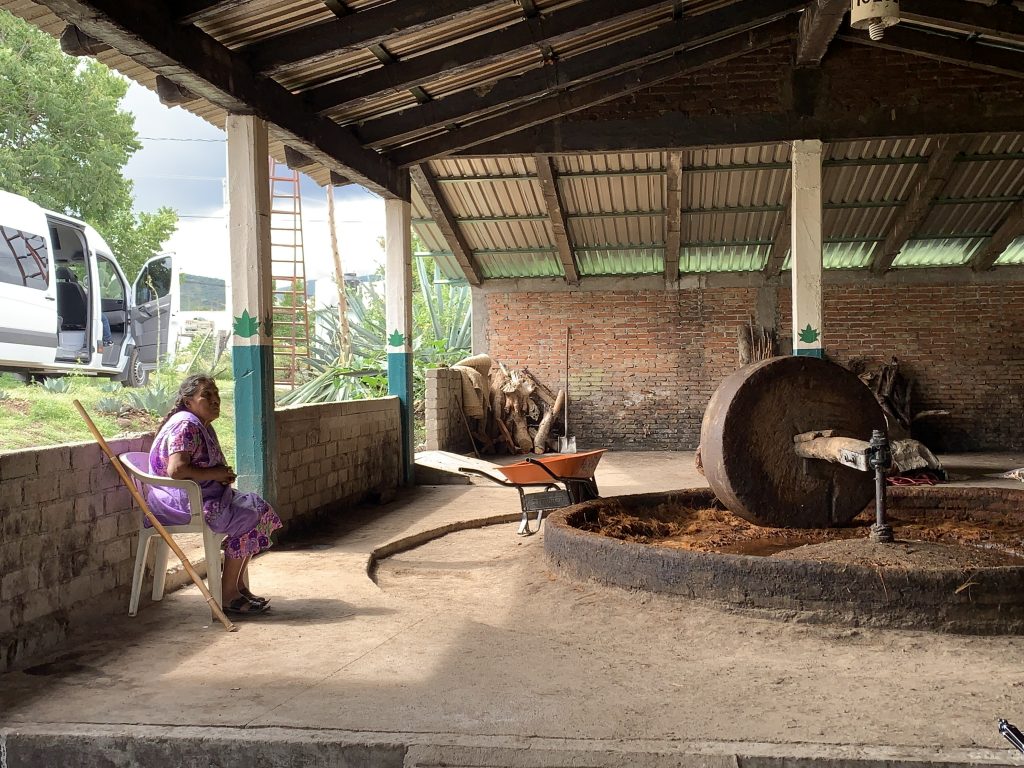
After cooking, the agave piñas are crushed by hand or with a traditional tahona, which is a large stone wheel that is rolled over the agave to extract its juices. The resulting juice, or “mosto,” is then fermented in large, usually, open-air vats using natural wild yeasts, which can take several days to several weeks depending on the conditions.
Once fermentation is complete, the “mosto” is distilled in small copper or clay pot stills, which are often heated over an open flame. The resulting mezcal is typically bottled unaged, or aged for a short period of time in glass or oak barrels to mellow out its flavors.
Traditional mezcal producers take great pride in their craft and often emphasize the unique terroir of the agave plants they use, which can impart different flavors and aromas to the final product depending on the region and soil conditions where they are grown. Many traditional mezcal producers also employ sustainable farming practices and prioritize preserving the natural environment and biodiversity of their local ecosystems.
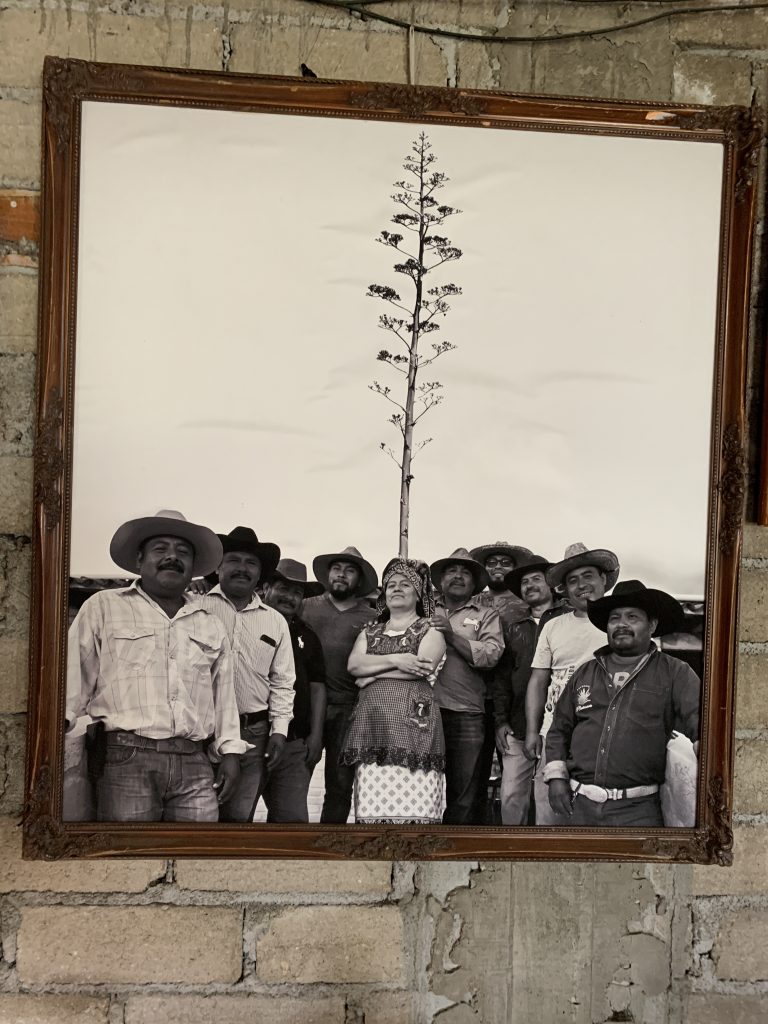
Community Taste
Community taste is an important aspect of mezcal production in Mexico. In many regions, mezcal production is closely tied to the local culture and traditions, and the mezcal produced in each community is often distinctive and reflects the local flavor preferences and production techniques.
In some cases, mezcal producers within a community will share a common production method, resulting in a consistent flavor profile among the mezcal produced in that region. This can be due to factors such as the use of specific types of agave plants, the method of cooking and distillation, or the presence of unique natural yeasts in the fermentation process.
Community taste can also be influenced by the preferences of local consumers, who may have a strong affinity for particular flavor profiles or styles of mezcal. For example, some regions may produce mezcal that is known for its smokiness or earthy flavors, while others may produce mezcal that is fruitier, more lactic or more floral.
In recent years, there has been growing interest in the concept of “terroir” in mezcal production, which emphasizes the influence of local environmental factors on the flavor and character of the final product. This has led to a greater appreciation for the unique flavors and qualities of mezcal produced in different regions and has helped to promote the use of sustainable and traditional production methods.
Contemporary Mezcal
Contemporary mezcal production has evolved in recent years to reflect changing consumer preferences and trends, as well as advancements in production techniques and technologies. Some of the key characteristics of contemporary mezcal include:
- Artisanal production: While traditional production methods are still widely used, there has been a growing trend towards artisanal mezcal production, with a greater focus on small-batch production, quality ingredients, and craftsmanship.
- Innovation: Many contemporary mezcal producers are experimenting with new techniques and flavor profiles, such as aging mezcal in non-traditional barrels, infusing mezcal with other ingredients, or using different types of agave plants to create unique flavor profiles.
- Sustainability: There is an increasing emphasis on sustainable and environmentally responsible mezcal production, with many producers using organic or biodynamic farming practices, and investing in renewable energy sources or waste management systems.
- Globalization: Mezcal has become increasingly popular on the global stage, with a growing number of international markets and consumers seeking out high-quality, artisanal mezcal. This has led to greater standardization in production methods and labeling, as well as a greater emphasis on quality control and consistency.
- Collaboration: Mezcal producers are increasingly collaborating with other artisans and industries, such as chefs, artists, and musicians, to create unique and innovative mezcal products that reflect the local culture and community.
Overall, contemporary mezcal production represents a fusion of traditional techniques and modern innovation, with a focus on quality, sustainability, and community.
The Future for Mezcal
The future of mezcal looks bright, with a number of trends emerging that are likely to shape the industry in the coming years. Some of the key trends to watch for include:
- Increased international demand: Mezcal has become increasingly popular outside of Mexico in recent years, with a growing number of consumers seeking out high-quality, artisanal mezcal. As demand continues to grow, we can expect to see a greater focus on export markets and international distribution.
- Sustainability and environmental responsibility: As consumers become more environmentally conscious, there is likely to be a greater emphasis on sustainable and responsible mezcal production. This may include the use of organic or biodynamic farming practices, renewable energy sources, and waste reduction strategies.
- Innovation and experimentation: While traditional mezcal production methods will continue to be respected and preserved, we can expect to see an increasing focus on experimentation and innovation. This may include the use of new types of agave plants, the introduction of new flavor profiles, or the adoption of new production techniques.
- Collaboration and community building: Mezcal production has always been closely tied to local communities and culture, and this is likely to continue in the future. We can expect to see more collaboration between mezcal producers, artisans, and community leaders, as well as greater efforts to promote the cultural heritage and traditions associated with mezcal production.
- Regulatory frameworks and quality standards: As mezcal becomes more popular and widely distributed, there is likely to be a greater emphasis on regulatory frameworks and quality standards. This may include the establishment of certification programs, the adoption of labeling requirements, and the development of industry-wide quality control standards.
Overall, the future of mezcal looks bright, with a growing focus on sustainability, innovation, and community building, as well as increased international demand and recognition.
Also check out
-
Tlecan Mezcaleria Mexico City Scores Top 10 on North America’s 50 Best Bars 2024
-
“IT’S ALL MEZCAL” – A Deep Dive into a Mexican Tradition
-
Tasting Mezcal Like a Pro: A General Guide
-
ESPANITA ARTISANAL TEQUILA INTRODUCES DOUBLE BARREL ANEJO TEQUILA
-
Mezcal Amarás Logia Horno: Taking Luxury, Collectible Mezcal to a New Level
